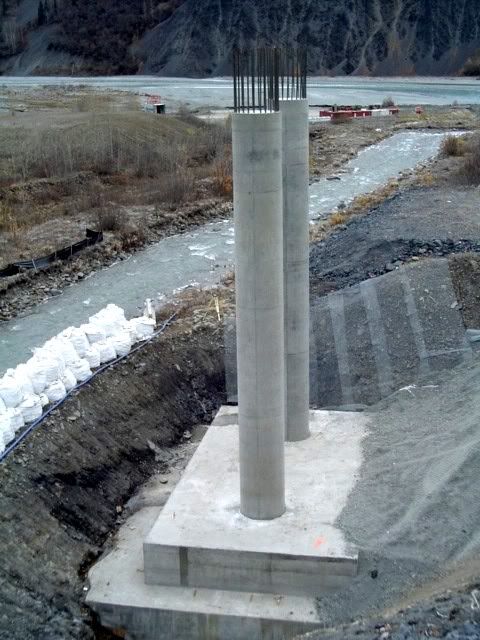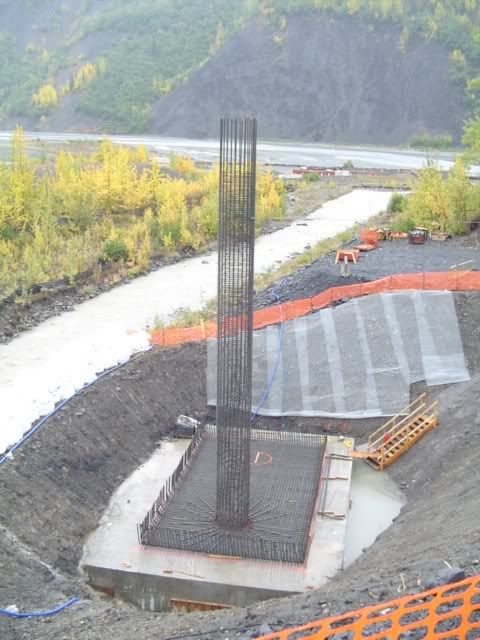OMG! You guys are killing me. I hope neither of you are in the concrete business. If you are, well, you should already know better.

Rebar placed in flat work is there to stop vertical shifting and or a crack from widening. In theory concrete basicly has to crack before the rebar comes into play. Concrete doesn't know or care if it has rebar in it or not. If it's going to crack for whatever reason, it's gonna crack and that's when the rebar starts to come into play
Rebar can promote cracking because the rust or corrosion around the rebar swells causing the concrete around it to crack.
By the way I said CAN promote cracks. I didn't say rebar makes it crack.
I'm curious, in what magical way do you think rebar keeps concrete from cracking?
I am not necessarily in the concrete business, I am an engineer in the transportation constuction business where we do alot of concrete work for bridges, retaining walls, and structural foundations.
I will be the first one to admit that I didnt pay much attention in my concrete or mechanics of materials classes while in engineering school, but I do like to think I know the purpose and intent of rebarr.
I think where we are getting crossed up is you may be talking about "flat work" like you stated earlier and I am talking reinforced structural concrete members. In flat work like garage slabs, patios, driveways, side walk, etc then like I said before, you dont need rebarr and we totally agree.
You are in the concrete business, you know concrete fails primarily under tensile loading. Concrete primarily fails by cracking. Re-steel provides additional tensile strength which therefore helps keep concrete from cracking. I hope this is a good enough explanation of the "magical way" rebar keeps concrete from cracking.
I do agree that corroded rebar can cause cracking, especially in bridge decks (which is why we use alot of epoxy coated rebar in our bridge decks). But given how EVERY design for structural concrete has rebar reinforcement and the vast majority of that re-steel is has no coating, it is safe to say that the increased strength the rebar provides outweighs the chance of the rebar getting corroded and causing cracks. Also, "That is the purpose of rebar, too hold it all together after it cracks, it has nothing to do with concretes ability to NOT crack." simply is not correct. Again, we may be getting crossed up if you are talking about flat work, but I would still argue that nominal rebar does indeed prevent shrinkage cracking.
Here are a couple photos from one of the piers off the last bridge I did, I promise you all the rebar had more of a purpose than to just hold it together after it cracks. Been fun talking with you but I am feeling dirty for being such a nerd this morning so I am done unless we continue this over beers, first round on me, cheers.



